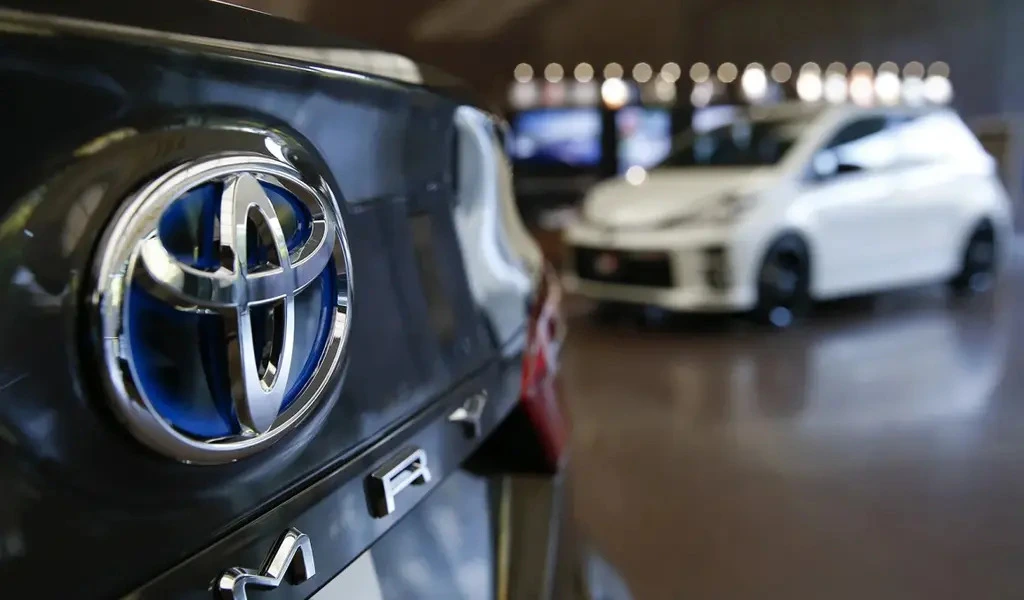(CTN News) – Toyota has maintained its position as the world’s largest automaker by sales, surpassing its German competitor Volkswagen for the fourth consecutive year.
While this is positive news for Toyota (TM), the company faces potential challenges due to ongoing scandals related to its inspection practices and lingering issues with exploding airbags dating back decades.
On Tuesday, the Japanese manufacturer reported a record-breaking sale of 11.2 million vehicles globally in 2023, inclusive of its Daihatsu and Hino lineups. This marked a 7.2% increase compared to the previous year.
In contrast, Volkswagen Group disclosed earlier this month that it had delivered 9.2 million vehicles in the same period, reflecting a 12% growth from 2022.
The battle for the top automaker title between Toyota and Volkswagen has persisted for years. Toyota claimed the leading position in 2012, surpassing General Motors in sales, but Volkswagen managed to dethrone Toyota in 2017.
Toyota attributed its recent growth to “solid demand in each region” and the alleviation of semiconductor shortages. Sales in its domestic market of Japan experienced a notable surge of 20.9%, while overseas sales saw a moderate increase of 4.1%.
Toyota Faces Mounting Challenges Amid Certification Scandals
However, the Japanese automotive giant may encounter significant challenges this year as it grapples with escalating concerns surrounding the certifications of some of its vehicles.
On Monday, Toyota announced a suspension of shipments for certain models after discovering irregularities in certification tests for diesel engines developed by its affiliate, Toyota Industries.
This issue affects 10 models globally, including popular ones like the Land Cruiser 300 SUV and Hiace van.
To address the situation and rebuild trust, Toyota has committed to taking corrective measures, including conducting new engine certification tests in the presence of regulators as necessary.
This revelation comes just a month after Daihatsu, a Japanese small carmaker owned by Toyota, suspended domestic production following an admission of falsifying safety test results spanning over 30 years.
Both scandals have raised serious concerns for the overall integrity of Toyota.
In a statement on Monday, Toyota acknowledged the gravity of the situation, stating, “We recognize the gravity of the fact that the repeated certification irregularities at [Toyota Industries], following those at Daihatsu, have shaken the very foundations of the company as an automobile manufacturer.”
The group has also issued a call for people in the United States to cease driving certain Toyota vehicles and have them repaired immediately.
Last week, Toyota warned owners of approximately 50,000 vehicles, including specific Corolla and RAV4 models dating back to 2003, about potential airbag explosions that could lead to serious injury or death.
Toyota has been grappling with a series of recalls in recent years, particularly related to faulty Takata airbags.
In December, the company recalled about 1 million cars and SUVs in the United States due to a potential defect that might cause the passenger airbag to fail to deploy in a crash.
Volkswagen also experienced growth in all regions last year, particularly in Europe and North America, where deliveries surged by 19.7% and 17.9%, respectively.
In contrast, the company’s largest market, China, saw a more modest growth of 1.6%, attributed to a challenging business environment.
The competition in China’s auto market, the world’s largest, has intensified, with local manufacturers gaining market share, and overall demand slowing down.
Tesla’s strategic price cuts in China last year triggered a price war involving numerous automakers, boosting sales but putting industry-wide profitability at risk.
This intense competition has impacted companies like BYD, a Chinese electric automaker. On Monday, BYD reported in a stock exchange filing that its net income likely increased by up to 86.5% in 2023 compared to the previous year.
Although substantial, this growth marked a slowdown from the remarkable 446% profit jump recorded in 2022, leading to a 4.4% decline in BYD shares in Hong Kong on Tuesday.
BYD gained attention after surpassing Tesla as the world’s largest seller of electric vehicles (EVs) at the end of the previous year, backed by investor Warren Buffett. Traditional automakers are also intensifying efforts to boost their EV sales.
In 2023, Volkswagen reported a nearly 35% increase in sales of fully electric vehicles, selling 771,100 units.
In comparison, Toyota, a leader in hybrid cars, sold 104,000 battery-powered vehicles in the same period and a total of 3.7 million electric vehicles, including hybrids, in 2023.
As the global electric vehicle race heats up, traditional automakers are striving to catch up and secure their positions in the rapidly evolving market.






